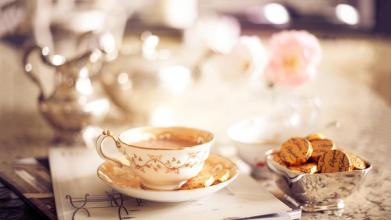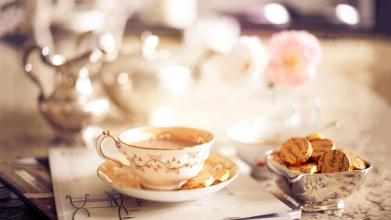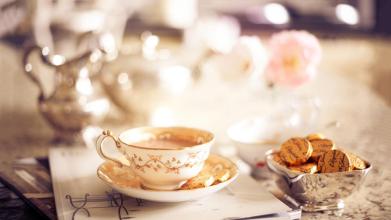Introduction to the flavor and taste characteristics of Kenya Jinchu Coffee Manor, which has a more sour taste.
People in the coffee industry all think that Kenyan coffee is one of its favorite products because Kenyan coffee contains every feeling we want from a good cup of coffee. It has wonderful and satisfying aromas, well-balanced acidity, well-proportioned particles and excellent fruit flavors. The taste is so unique that there is almost no similar coffee. Kenyan coffee is characterized by a distinctive fruity aroma. Try to find this flavor in the coffee and pay attention to how it feels in the mouth. One of the common fruit aromas is citrus. Kenyan coffee has a multi-layered taste and the acidity of fruit juice, perfect grapefruit and wine flavor, moderate mellowness on an international scale, the increase in the number of Kenyan coffee is obvious, from 1969 to 1970, export 800000 bags, to 1985-1986, the output increased to 2 million bags. The general yield is stable at 1.6 million bags, with an average yield of about 650kg per hectare. Even before coffee prices skyrocketed, the average price of coffee in Kenya had been rising. Prices in 1993-1994 were 50% higher than they were 12 months ago. The rise in prices is mainly the result of increased demand.
Some buyers, especially Japanese businessmen, have expressed dissatisfaction with the Kenyan coffee industry system. Some businessmen say that the quality of coffee in the country has declined, and point out that buying directly from farmers may be a way to improve the quality. But in any case, Kenya's detailed rules and regulations and sound procedures are a model for all coffee-producing countries.
Kenyan Coffee became more famous with the sensation of the Hollywood movie OutofAfrica.
Karen, the heroine played by Meryl Streep (MarylStreep), is a writer and coffee plantation owner. Many people may still remember the beautiful scenery and the magnificent sunset in the film, but what is even more unforgettable is Karen's dream of having a coffee plantation in Africa, Ethiopia, the origin of Arabica coffee trees in Kenya, but it was not until the beginning of the 20th century that he began to cultivate coffee. Missionaries introduced Arabica trees from Yemen in the 19th century, but did not plant them in large quantities until 1893. The introduction of Brazil's ancient bourbon seeds led to the large-scale cultivation of coffee, that is, Kenyan coffee is of Brazilian origin, and the taste of Kenyan beans is very different from that of Brazilian beans due to differences in water, climate and handling methods. Brazilian coffee is planted at a low altitude, with soft texture and no obvious sour taste. In contrast, Kenyan coffee trees are mainly concentrated on the slopes near Mount Kenya, about 4 to 6500 feet above sea level, which is suitable for coffee beans to develop their flavor, because the mountain temperature is lower and the growth is slower, and the aromatic components of coffee beans are fully developed. the acidity of the fruit is more obvious and the texture is harder. In addition, Kenya was an early British colony, and the British had established a set of perfect cultivation and quality control system. After the independence of Kenya, the coffee industry only knows the excellent brewing skills, but does not know how to taste the coffee, so the original delicacy may become tasteless. Some people taste coffee with the taste of the tongue, while others enjoy the aromatic mellow in the mouth. in addition, it depends on the condition of the body and the atmosphere around the coffee. In a word, tasting coffee is a very delicate thing.
When you drink coffee in a coffee shop, you sometimes drink almost half-cold coffee. No matter how good the coffee beans are and how good the brewing skills are, you will lose your appetite for coffee. Drinking while it is hot is a necessary condition for tasting delicious coffee, even on a hot summer day. When the coffee is cold, the flavor will decrease, so when brewing the coffee, in order not to reduce the taste of the coffee, soak the coffee cup in boiling water in advance. The appropriate temperature for coffee is 83 degrees Celsius at the moment of brewing, 80 degrees Celsius when pouring into the cup, and 61-62 degrees into the mouth.

Important Notice :
前街咖啡 FrontStreet Coffee has moved to new addredd:
FrontStreet Coffee Address: 315,Donghua East Road,GuangZhou
Tel:020 38364473
- Prev

Introduction to the flavor and taste of Ethiopian Yega Snow Fay Adordo Coffee, which is not strong in import.
In February 1977, Lieutenant Colonel Mengistu Haier Maryam (MENGISTU HAILE MARIAM) launched a military coup and served as Chairman of the interim military Administrative Council and head of State. In 1979, the Ethiopian Labor people's Party Organization Committee, dominated by soldiers, was established to implement an one-party system. In 1984, the Ethiopian Workers' Party was formed according to the Soviet Communist Party model. Mengistu, September 1987
- Next

Characteristics of flavor and taste of Guatemala Antigua Flower God Coffee Manor with slightly charcoal flavor in aromatic alcohol
The Antigua Valley (Antigua Valley) is the oldest and best-known coffee producing area in Guatemala. Volcanoes and extremely shallow groundwater levels form a dry microclimate, characterized by low humidity, adequate sunshine and cool nights. Antigua is a closed valley surrounded by three volcanoes: Agua, Acatenango and
Related
- Detailed explanation of Jadeite planting Land in Panamanian Jadeite Manor introduction to the grading system of Jadeite competitive bidding, Red bid, Green bid and Rose Summer
- Story of Coffee planting in Brenka region of Costa Rica Stonehenge Manor anaerobic heavy honey treatment of flavor mouth
- What's on the barrel of Blue Mountain Coffee beans?
- Can American coffee also pull flowers? How to use hot American style to pull out a good-looking pattern?
- Can you make a cold extract with coffee beans? What is the right proportion for cold-extracted coffee formula?
- Indonesian PWN Gold Mandrine Coffee Origin Features Flavor How to Chong? Mandolin coffee is American.
- A brief introduction to the flavor characteristics of Brazilian yellow bourbon coffee beans
- What is the effect of different water quality on the flavor of cold-extracted coffee? What kind of water is best for brewing coffee?
- Why do you think of Rose Summer whenever you mention Panamanian coffee?
- Introduction to the characteristics of authentic blue mountain coffee bean producing areas? What is the CIB Coffee Authority in Jamaica?

